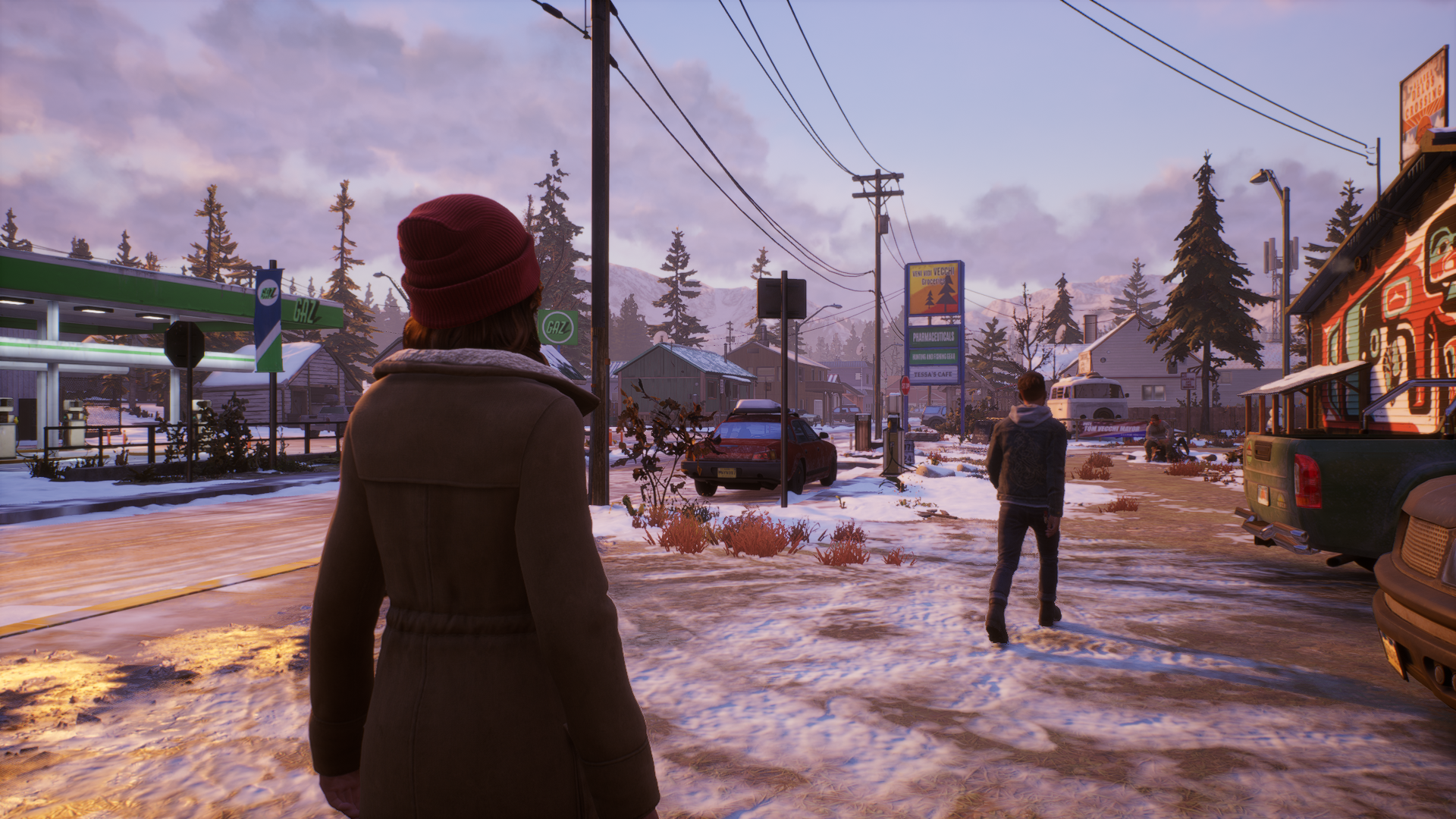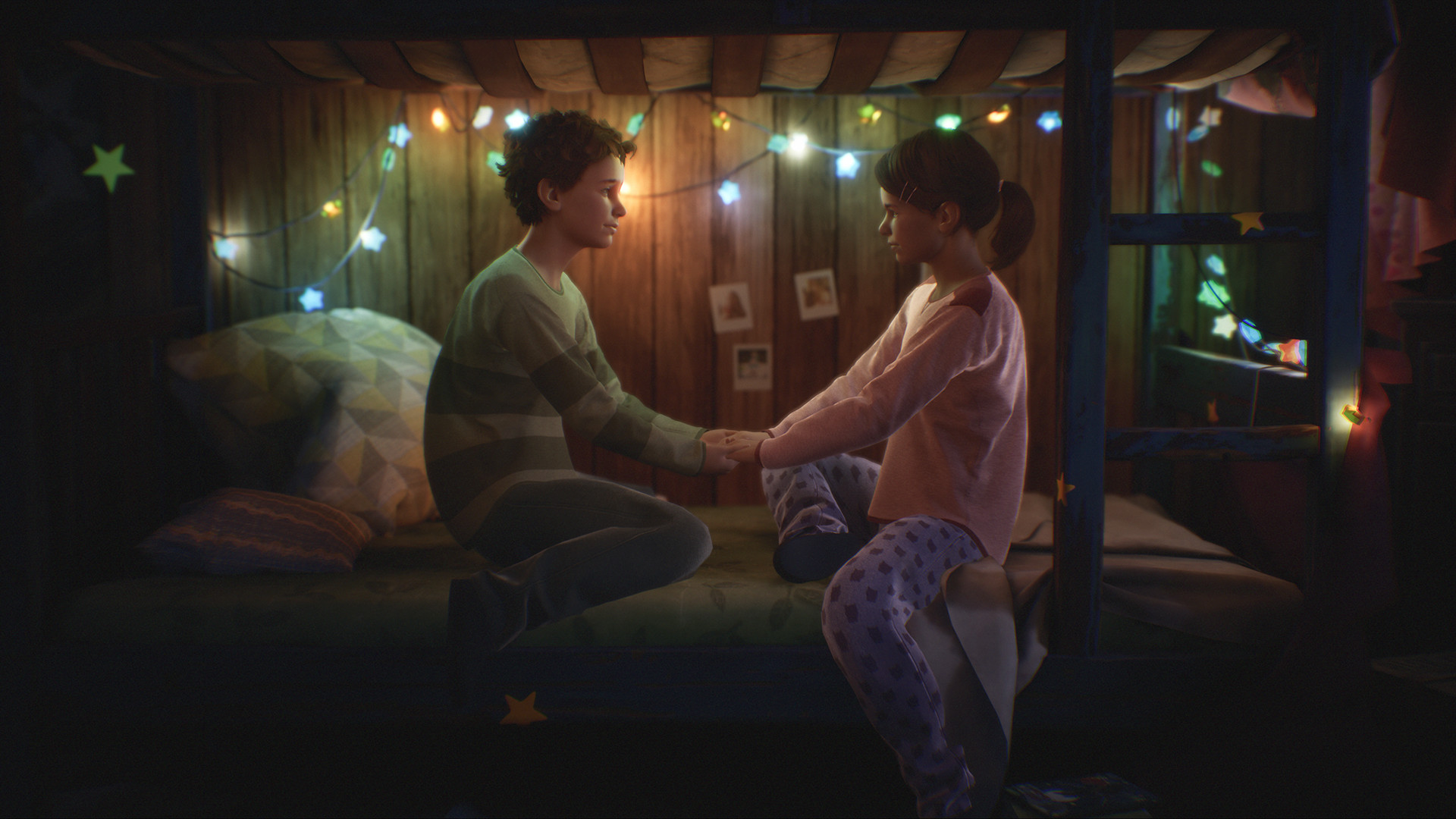What is it? An episodic narrative adventure game about two twins in an Alaskan town.
Expect to pay $30/£25
Developer DONTNOD Entertainment
Publisher Xbox Game Studios
Reviewed on 64-Bit Windows 7, Nvidia GeForce GTX-970, Intel i7-4790K, 16GB RAM
Multiplayer No
Out Chapter 1: August 27, Chapter 2: September 3, Chapter 3: September 10
Link Official site
It’s maybe fitting that a game about twins feels split in two. On the one hand, a dark thriller with supernatural horror. On the other, a warm, coming of age drama about identity and family. Both these games have potential but slammed together into one, like two colliding trains, leaves players to pick through the wreckage. There are good things to salvage but it nonetheless feels fractured and broken.
What’s worth salvaging are some scattered bits and pieces, and a sizeable, engaging second chapter. Twins Tyler and Alyson are reunited for the first time in ten years since the death of their mother, who we’re told Tyler killed in self defence. Now they’re revisiting the family home and all manner of painful memories are coming to the forefront. Up front it’s also a story about Tyler’s identity as a trans man, his struggles with that identity in his past as well as dealing with prejudices in his present.
If Tell Me Why was just that, it might well have been among my favourite games this year. Its depiction of rural Alaska is gorgeous and supremely detailed, Dontnod really have an eye for lived in spaces as well as those big vistas. There’s a powerful sense of place. It’s just a shame that it feels largely irrelevant to the story being told. I wanted to live in the small town drama, explore Tyler’s navigation of a more conservative part of the world and the siblings trying to rekindle their relationship after so long apart. At times it lives up to the promise. Especially in the middle, there are long segments of low stakes drama—like the twins cleaning up their old house or reconciling their grievances with a father figure—that engrossed me.

The game is let down here as it is elsewhere by some really simple mechanics, splitting itself between dialogue choices and contextual prompts to use items, and a plethora of dreadfully boring puzzles. There’s literally a sequence where you have to count the items in a stockroom. I’m serious—just looking at some tins and counting them. Yet surprisingly the game’s narrative is at its most deft in these sequences, able to pull us into the warmth of the twin’s relationship or deliver tender moments as they work through the unaddressed pain of their past. The dialogue is pretty clunky and over reliant on exposition, and the occasional attempt at youth speak is painfully “how do you do fellow kids”, but perhaps that just adds to the awkward charm of these youngsters who have grown up in isolation.
The occasional attempt at youth speak is painfully “how do you do fellow kids”.
It never lasts. Because Tell Me Why also wants to tell a dark and mysterious story about the twins’ past, with a dangerous hooded figure chasing them and covering up a conspiracy all while the threat of the supernatural looms over everything. The whiplash felt as the game swerves between these two tones borders on lethal. I frequently found myself needing to take a minute just to get on board with the sudden unexpected shifts, like the opening with its heart-warming montage set to indie music that comes right after watching a kid confessing to murder. Both these sides of Tell Me Why’s story undermine each other. Its thriller storyline is undone by the desire to be kind and respectful to its characters, never facing them with a serious or troubling threat. The game’s gentle coming of age story is equally undone by the hard yank back into its darker overarching story, with its disturbing and occasionally absurd twists.

To its credit Tyler gets to be more than a one note character, with his aspirations and anxieties sprinkled throughout. While there are missteps, they’re at least well meaning, and the game goes to great lengths to respect Tyler’s identity like few games of this scope ever have—even if it de-fangs some of the realities you might expect him to be dealing with. The same can’t be said of Alyson who largely exists to oppose Tyler’s exploration into his past. The rest of the cast fare worse, though in some ways that can be forgiven—the focus is squarely on the twins. But that just makes Alyson’s lack of attention feel glaring, which is a shame. The rare moments when we get a glimpse of her life outside of her past and her relationship with her brother bring her and the game to life, in spite of its rote puzzles and choices.
This focus on Tyler’s past might have paid off if it weren’t for its clumsy handling, the game’s thriller plot seeming to demand that his life be full of twists and turns that only serve to undermine the trauma of abusive parents that is very real for all too many. There’s plenty of material to explore there but the more the game goes on chasing its mysterious bogeyman, the less room it makes for Tyler’s struggle and his healing. Not only that but the twists swap real world themes for the fantastical and, eventually, the absurd. What starts as a, perhaps unnecessary, dark tale of childhood trauma winds up more about a paranormal evil. I wish Tell Me Why had either married those elements better or abandoned the supernatural stuff altogether.
For a good chunk of its middle chapter I’d begun to buy into the siblings, and the town of Delos Crossing, and cared about the choices they’d make regarding their future. By the end, the game stopped asking me to engage with two believable humans and instead insisted I care about a fantastical, predictable foe. Videogames are so often about the latter that Tell Me Why’s abandonment of the former feels like a real crying shame. In those brief scenes Tell Me Why really felt like it had something special. Guess it really ain’t nothing but a heartbreak.
